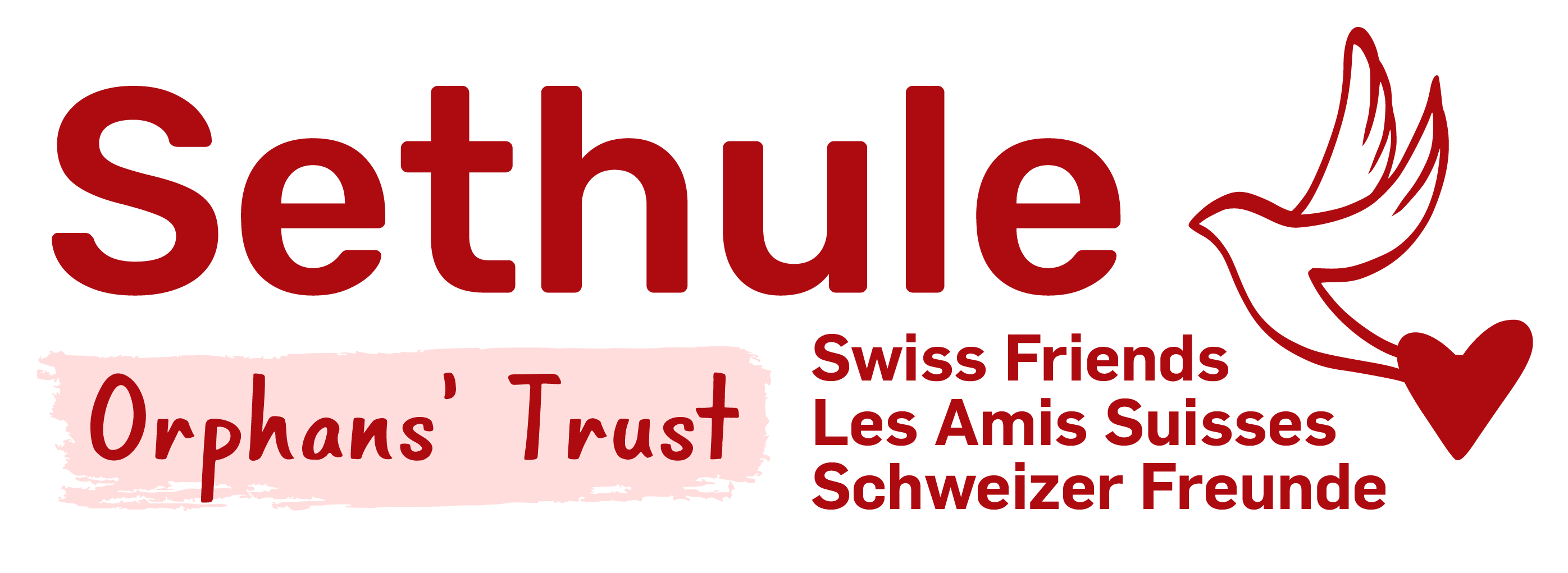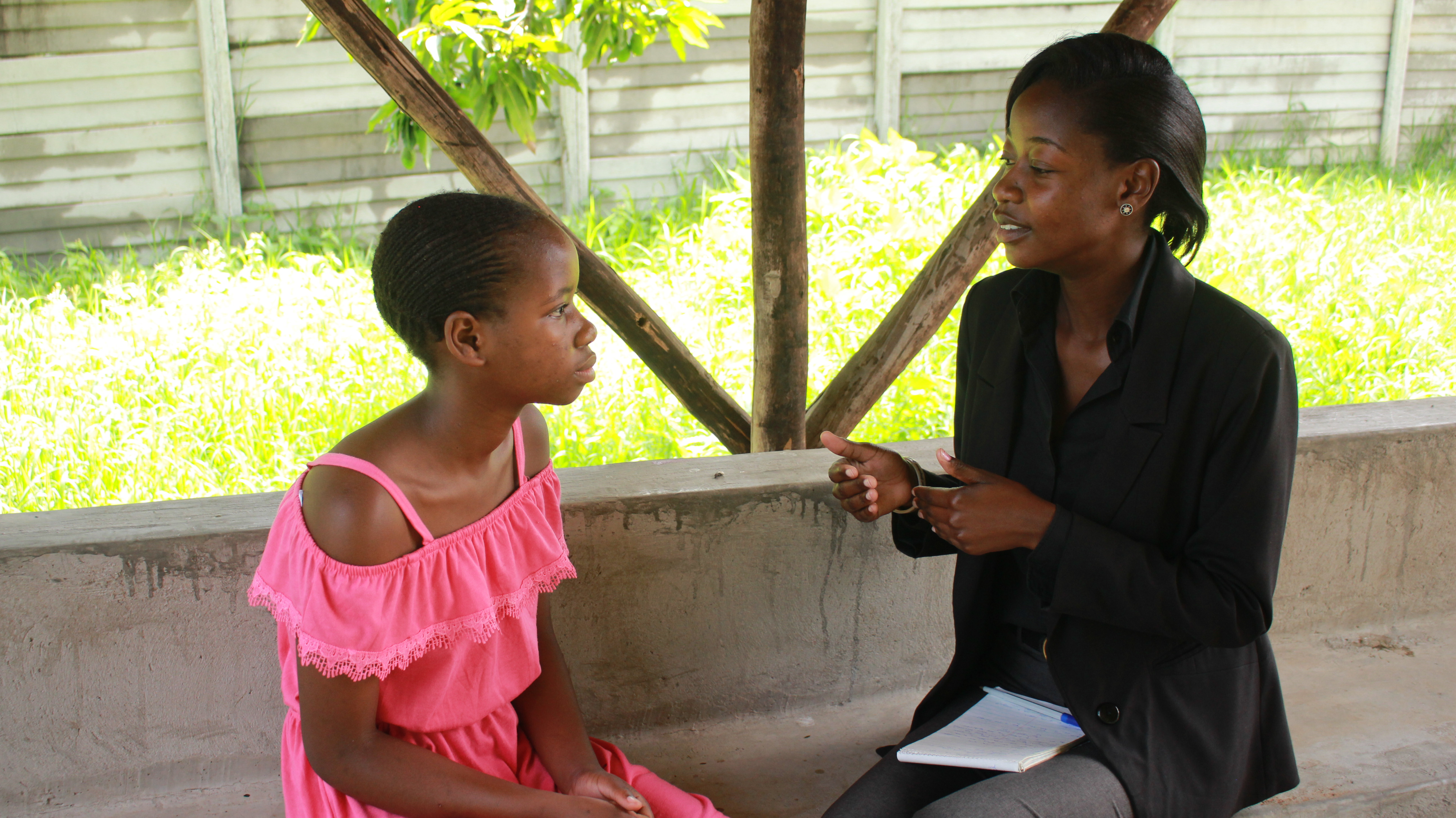



In Switzerland
Our association supports the small relief organisation Sethule Orphans' Trust based in Bulawayo, Zimbabwe.

In Zimbabwe
Sethule Orphans' Trust works in rural south-western Zimbabwe. Natisa was the original centre, but today activities take place in the larger region of Matabeleland.

Sethule Orphans' Trust works with the rural population and various schools in Matabeleland in southwest Zimbabwe to:
Some projects and programmes
Bereavement counselling and positive parenting

 The tree of life helps the children to draw their feelings and reactions.
The tree of life helps the children to draw their feelings and reactions.Sethule offers counselling and support to orphans and foster ‘grand’mothers to cope with their grief. Children suffer from the loss of their parents not only because of death but also because of divorce or disappearance. In meetings lasting several days with 30 children, specially trained counsellors help young children to draw their hidden feelings and reactions using the Tree of Life method. For older ones, the emotional logic method is used. The impact on school and community life is extremely positive.
For foster parents and guardians, Sethule runs workshops where participants share ideas and discuss difficulties on how to raise a safe, healthy, happy and confident child.
Child Safeguarding has become a central focus that is important in all programmes. Workshops for teachers as well as parents and staff are held regularly.
Birth certificate project
 Many doors open only through a birth certificate - Sethule assists with the difficult hurdles to obtain a certificate
Many doors open only through a birth certificate - Sethule assists with the difficult hurdles to obtain a certificateOne in three children in rural Zimbabwe does not have a birth certificate for a variety of reasons. For orphans, the figure is almost 90%. This has serious consequences: They cannot take national school exams and therefore cannot attend secondary schools. They do not receive an identity card and are therefore excluded from official institutions and disadvantaged in many ways. Sethule helps children and their families through the complicated process of obtaining a birth certificate.
Education: from pre-school to university
 Sethule enables disadvantaged children to attend primary school as well as secondary schools
Sethule enables disadvantaged children to attend primary school as well as secondary schools  We are ready for school - Sethule runs two pre-schools and provides one meal a day for each child
We are ready for school - Sethule runs two pre-schools and provides one meal a day for each childThe state of Zimbabwe requires all children to pay school fees, wear a school uniform and pay for school materials and other expenses. This is often a heavy burden for rural families. Sethule Orphans' Trust provides financial support selectively so that they can attend school. Over 50 disadvantaged children and young people also receive comprehensive support. Young gifted children are further supported after they have completed their mandatory education. Sethule covers the costs of boarding schools and universities or technical colleges.
In 2006, Sethule opened EMARIKA, the first Sethule kindergarten. Currently, Sethule runs two accredited pre-schools where the children also receive a healthy daily meal.
Would you like to sponsor a child at school?
Hygiene programme
 Education about female menstruation and distribution of hygiene bags is close to Sethule's heart
Education about female menstruation and distribution of hygiene bags is close to Sethule's heartSethule educates and supports these girls with the necessary hygiene articles.
Sethule Skills Centre

 Living in the city is a big challenge - Sethule prepares students with basic life skills
Living in the city is a big challenge - Sethule prepares students with basic life skills Ride for education
 17km to school is easier by bike than on foot - Sethule lends bikes to children living far
17km to school is easier by bike than on foot - Sethule lends bikes to children living far Sethule lends bicycles to students from different schools. They are responsible for the care and maintenance. Where necessary, a Sethule staff member repairs the bikes.
The Sethule garden
 Vitamins from the Sethule garden... fresh vegetables for local families and the feeding programme
Vitamins from the Sethule garden... fresh vegetables for local families and the feeding programmeREACT (Reject & Expose All Child Trauma)
 One in 10 children is sexually abused before 18 in Zimbabwe
One in 10 children is sexually abused before 18 in ZimbabweMental Health / Stable Child Psychology as a Basis for Life
 Child receiving mental health counselling
Child receiving mental health counsellingIn weekly lessons, pupils learn how everyday challenges, stress and conflicts affect their health and learn how to cope with them. A trained staff member counsels children who are particularly distressed and, if necessary, refers them to professional help. Teachers and parents are sensitised in workshops.
D2BD (Dare To Be Different)
 Sethule supports teenagers in Zimbabwe to avoid early pregnancies, school drop-outs, drugs, sexual violence and HIV/AIDS
Sethule supports teenagers in Zimbabwe to avoid early pregnancies, school drop-outs, drugs, sexual violence and HIV/AIDSThe school club D2BD enables young people to express their views, exchange ideas, find their own solutions and thus defend themselves against negative influences. Through activities such as playing theatre, singing and group discussions, the young people express their feelings in a wide variety of situations and learn to make responsible decisions.
VID Programm (Voices In Development)

 Starting a start-up - how to use my resources to generate an income
Starting a start-up - how to use my resources to generate an incomeIn rural areas, technical vocational training and skills development are rarely accessible. Many youth do not understand that in order to generate an income, they can develop something of their own, a small start-up, and not wait for government employment. Sethule shows them that a change of mentality, discovering and using their own resources will make a difference. The young people are taught basic skills in computer technology, research, analysis and leadership. The project identifies socio-economic opportunities in the rural areas where Sethule operates.
ATTIC (a time to invite Christ)

 Great experiences and new perspectives for teenagers in August camps
Great experiences and new perspectives for teenagers in August campsFeeding programme

 One basket contains maize, oil, sugar, salt, beans, soap and is sufficient for a family of four for one month.
One basket contains maize, oil, sugar, salt, beans, soap and is sufficient for a family of four for one month.Sethule gives malnourished preschool children a daily meal, promoting their health and better success in school.